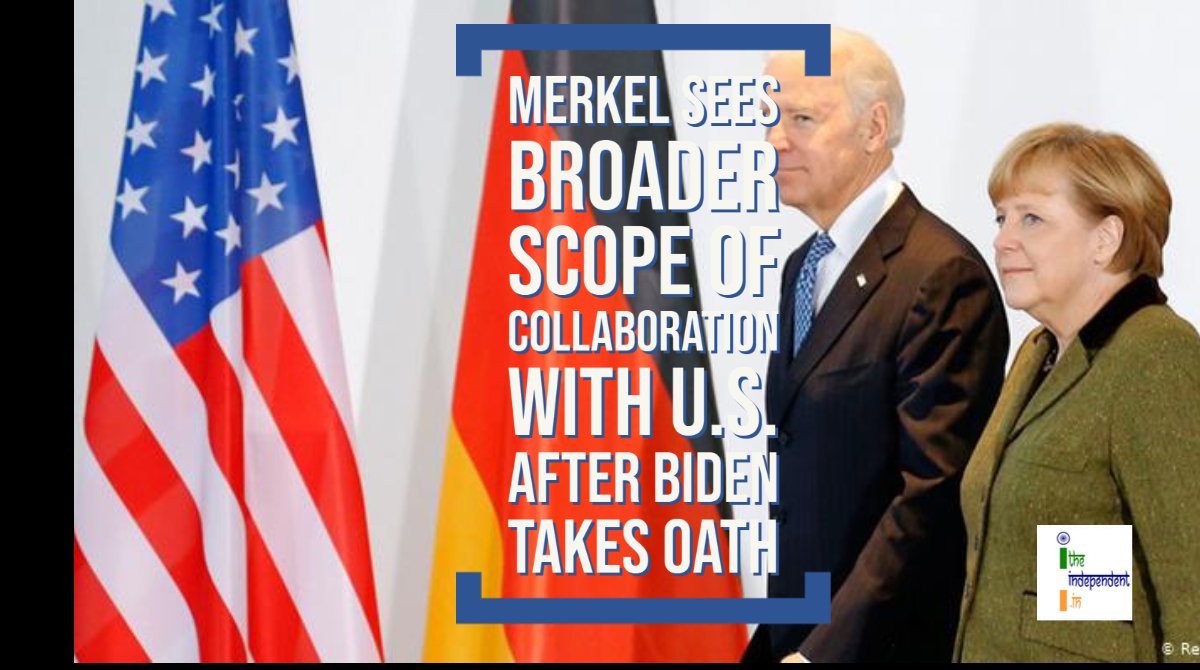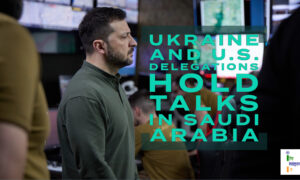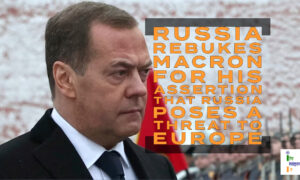
Angela Merkel sees broader scope of collaboration with U.S. after Biden takes oath
The Chancellor of Germany – Angela Merkel has said there is a broader scope to collaboration with the United States (U.S.) now as Joe Biden has sworn in as the 46th President of the U.S.
Former U.S. President – Donald Trump’s “America first” approach was not received well globally. He withdrew from the Paris Climate Change mitigation which was signed in 2015. Trump also withdrew the membership with World Health Organisation (WHO).
Merkel expressed confidence that Germany and Europe are ready to do their part to address a range of issues in the transatlantic in-tray including the Coronavirus (COVID-19), climate change and security threats with the new administration.
Taking it to twitter, the official twitter handle of German Foreign Office tweeted,
"The return of the United States to #WHO & #ParisAgreement, the prospect of early talks on the future of the #JCPoA – on @POTUS Joe Biden’s first day in office, all this points to a new kind of cooperation." Foreign Minister @HeikoMaas pic.twitter.com/8by4kLZWrq
— GermanForeignOffice (@GermanyDiplo) January 21, 2021
Merkel said that relations with U.S. can now go beyond diplomatic ties and the two can discuss things in the large interest of the global community. Merkel feels that now there is a partner with whom they can negotiate.
At the same time, Merkel has also cautioned that she may not agree with U.S. on all the points.
Merkel told reporters, “Don’t think that from tomorrow there will only be harmony between us. There will also be arguments about how best to do things for our two countries.”
Trump was very critical of Germany’s contributions to the North Atlantic Treaty Organization (NATO) during his tenure. Trump had proposed to withdraw 12,000 troops from Germany. Of this, 6,400 U.S.
troops were supposed to return home and the remaining were to be repositioned to other NATO members like Italy and Belgium. Trump believed that Germany’s spending on defence is too low and it is not viable to keep the U.S. troops posted there. It was initially agreed by all alliance members that defence spending should reach 2% of Gross Domestic Product (GDP) by 2024. Germany, along with many other countries, is yet to meet this target.
Interacting with media, Merkel also spoke about U.S.’s opposition to the Nord Stream 2 pipeline project to bring Russian gas to Germany. Nord Stream (formerly known as North Transgas and North European Gas Pipeline) is a system of offshore natural gas pipelines from Russia to Germany. It includes 2 lines running from Vyborg to Greifswald, forming original Nord Stream (Nord Stream 1), and two lines running from Ust-Luga to Greifswald, termed as Nord Stream 2.
The U.S. has always opposed the project saying that it if feels this would increase Russia’s hold in the Europe. Worth U.S. $ 11 billion, Nord Stream 1 and Nord Stream 2 have an annual capacity of 55 billion cubic metres. Besides, Nord Stream 2 would allow Russia to bypass Poland and Ukraine to deliver gas under the Baltic Sea to Germany. The U.S. believes that Ukraine could lose billions of dollars in transit fees if it is built. The U.S. is mulling alternatives that can be offered to Germany. However, Merkel had termed these U.S. sanctions as “out of order”.







